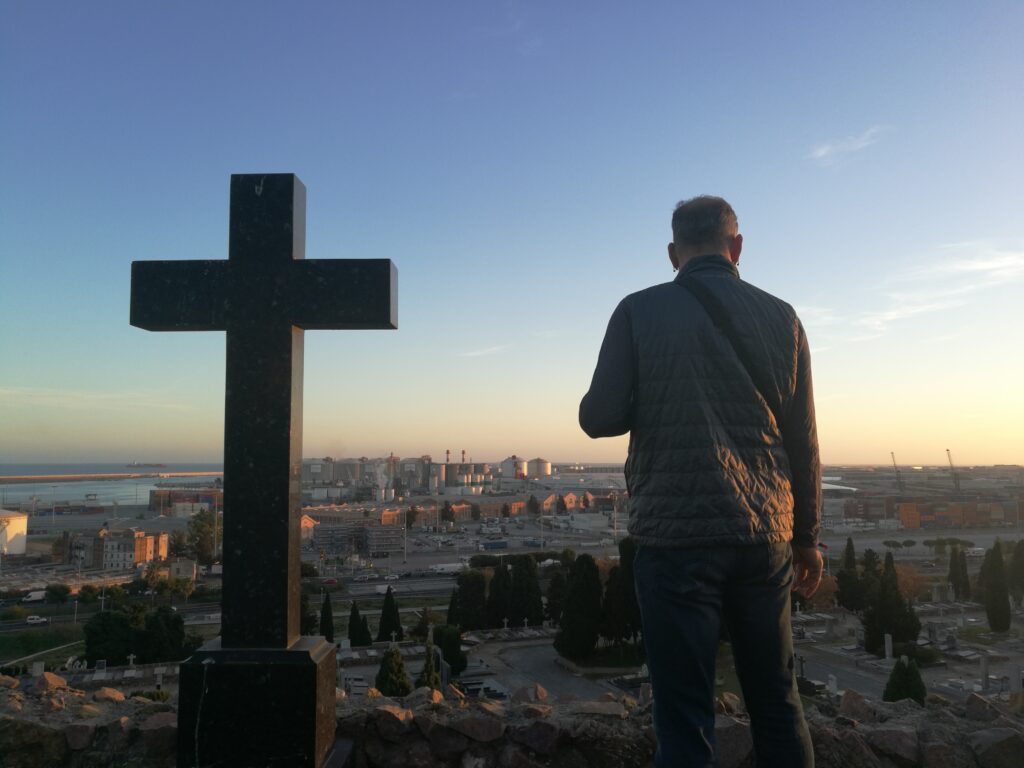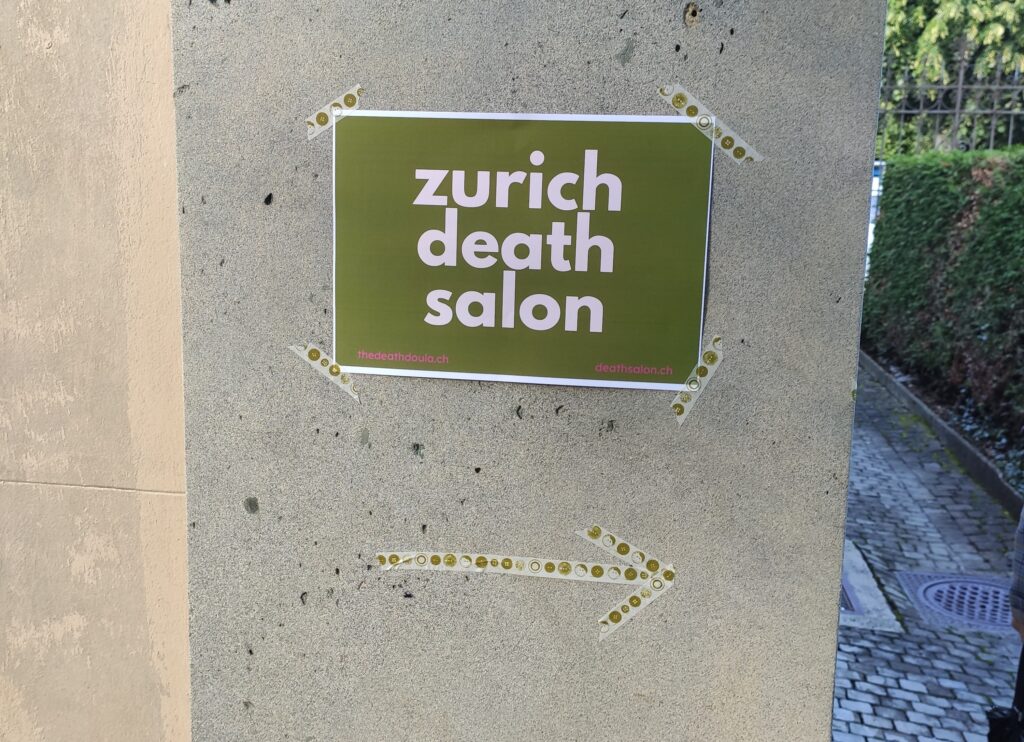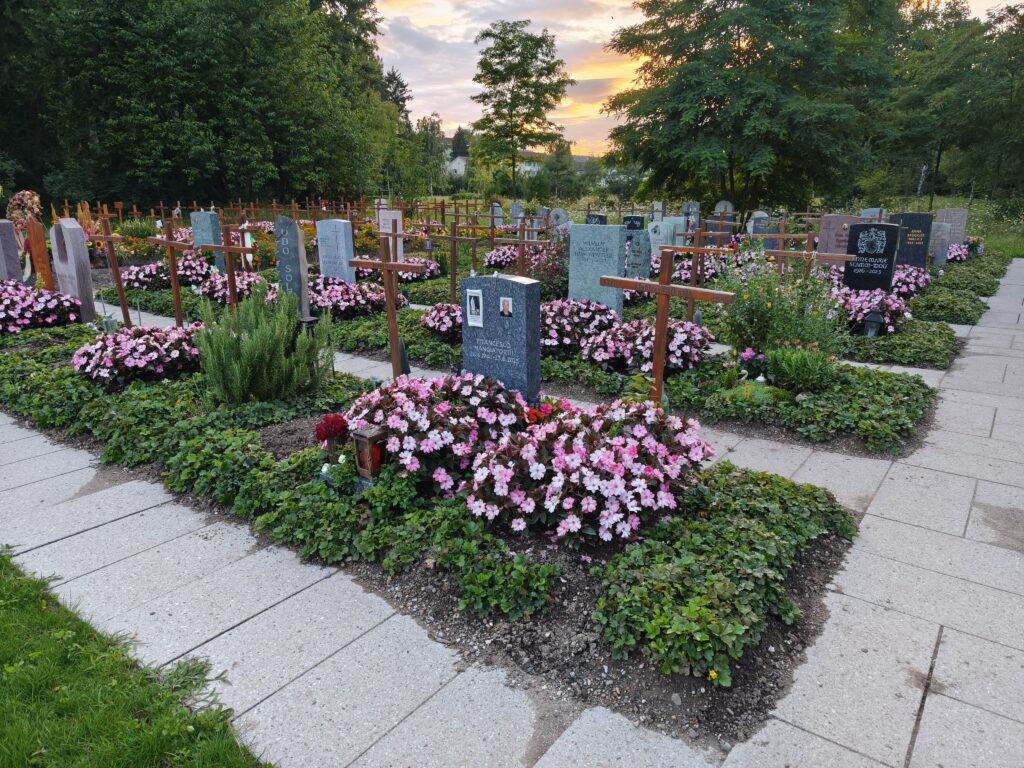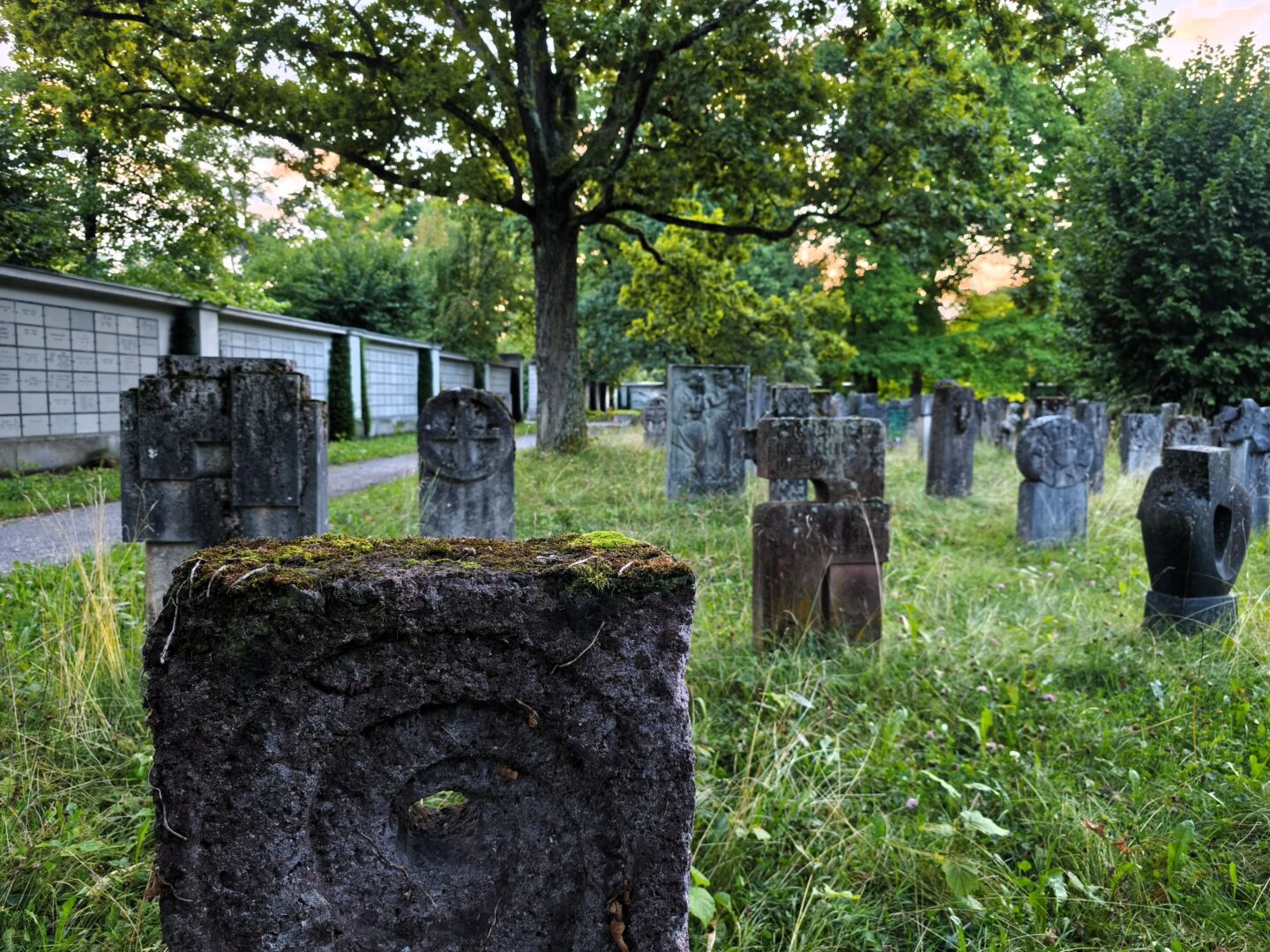Earlier this year I was looking for interesting networking events in the Zürich area. There was one on the official page of the city of Zürich that caught my eye. A networking event per se, just not what I was looking for. Here’s a snippet from the description:
In 2013, The Order of the Good Death created their first Death Salon.
“In the spirit of the eighteenth-century salon – informal coffeehouse gatherings of intellectuals – Death Salon encourages conversations on mortality and mourning and their resonating effects on our culture and history.”
I knew the concept of these events. Back in 2019 I was a part of an art camp at Nowhere festival, a European version of the Burning man. Our camp, Lovebox, organized the Death Salon amongst other cool workshops related to love and connection. I didn’t feel like participating back then, because death did not play any important role in my life. Even though I experienced death of relatives, none of them was close enough.
Unfortunately, this January things changed when my ex-boyfriend Juan passed away after a 2-year-long fight with cancer.
His family is planning to bring his ashes to Spain in September, and I sincerely hope to join them.

Our relationship did not end nicely and we cut the communication completely. His first message after a long silence was about cancer and it shook me to the core. I gave it a long thought and decided to be a part of his journey by regular calls. We slowly managed to become friends again and these calls, as hard as they were, always cheered me up. Of course, we talked about the chemo and its effect on his body, but mostly we just laughed and shared crazy stories. The death was creeping closer in every conversation, but it didn’t feel shocking anymore. Is there a way to emotionally prepare for it? I knew that the time had come around a week before the D-day, so I said my goodbyes and expected the news.
When the news came, I froze for a while. I shed a tear or two, but nothing more. There was a ball of heavy emotions inside and I had no idea what to do with them. Juan was someone that used to be very close and now he’s gone from the world. The emotions tried coming out once, but I was in a museum and stopped them, promising myself to deal with them at home. I couldn’t release them at home. I couldn’t do it for months afterwards. I think of him sometimes and feel the heaviness around my stomach, but I cannot proceed. This is where the Death Salon comes into play. Could this be a way to deal with my emotions? Apart from that, I was very curious to attend something outside of my comfort zone.

I wrote an email to the organizer to secure my spot.
The event location was a cemetery in my neighborhood, a short bike ride away. On the way I still had my doubts: Don’t you have something better to do on a warm Friday night? I arrived. Right next to the gate there was a sign and grave candles guiding me around the corner.
The cemetery Forum consists of a Greek-style entrance building and beautiful gardens. The best adjectives to describe the area would be gracious and peaceful. My anxiety increased when I saw that the candles lead to the basement. I locked my bike, took a deep breath and walked all the way down. The basement looked surprisingly cozy, with a couple of chairs arranged in a circle around a table with cookies. Kristen, the organizer, gave me a warm welcome and offered me a drink.
Kristen started by introducing herself and the concept of the Death Salon. She’s from the US and her occupation is a death doula. She provides guidance and emotional support to people at the end of their lives, no matter if the end is natural or assisted. She does her job in English, which made me think: “There are many dying foreigners living in Switzerland who prefer speaking English. Are there tourists who come to die in Switzerland?” The answer is yes.
I like this snippet from an online article about suicide tourism:
The fact that citizens of one country make the decision to die in another country, far from their home and family, has a powerful effect on the public. It provides convincing evidence of determination and suffering.
Kristen has a warm outspoken personality and she’s an artist as well. She started a podcast series called Death virgin and she’s making a documentary film about death. Wow. We continued the introduction round, basically about who we were and why we came. Most of the people tried to keep it short, but some of them already shared a longer version of their story. We were a group of around eight people, some of them were regulars at the Salon.
Soon after we finished, Kristen asked me if I’d like to share my story about Juan.
I felt very vulnerable, almost ready to cry, but I said yes. The most important thing is that I felt safe in the environment, having heard the introductions of all participants. Some tears came, but I calmed down and started speaking. Telling/writing stories has always been my preferred way of post-processing reality, so following a logical storyline stabilized my emotions. This wasn’t my time to let the emotions out. I just wanted to tell the story.
Various parts of the story sparked a debate between all participants and the evening started flowing very effortlessly.
Kristen asked a few questions here and there, gathering inspiration for her podcast. We were a group of very diverse people connected by death and respect for each other.
An goth girl Sofia opened up about the goth culture and losing her older sister. They were not so close, which still makes her feel guilty. The sister was not religious at all, but her parents organized a very catholic funeral for her. Sofia felt that this was wrong, her sister would not be happy with it! That’s why she decided to plan her own funeral. One man was about to visit his friend who lost a child. He asked the group for some advice on how to bring this up. Our collective advice was “Just listen” and certainly avoid saying “Don’t worry, you can have another child”!
We discussed countless aspects of death with honesty, humor and compassion. I was fascinated by how much there was to discuss! Some topics would never even cross my mind. For example, logistics of the dead body are very difficult. If you get ashes, more people will have a chance to organize their trip in time to say goodbye. We discussed rituals that help us grieve and what does it mean growing up and seeing dead animals. Miscarriages are still children!

We moved outside to enjoy the warm summer air. After two hours of actively participating I was mentally exhausted, but I stayed for one more hour and just listened. Sharing difficult emotions about Juan was tiring, but the rest of the discussions were not.
The goal of the Death Salons is to normalize conversations about death; it’s not a mourning group. And that’s how it felt, slowly getting into my comfort zone again.
For one evening, I was a part of a community, not carrying my grief alone. I felt more connected to my neighborhood, life and myself. Happy to return! It’s a monthly event.
When I shared my experience with friends, an interesting thing happened: they started telling me their stories about death! Some of them I had heard for the first time. Talking is an important step in processing emotions. Let’s talk about death!

Leave a Reply